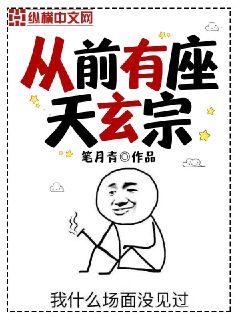
Certainly! Here's the structured article on "Optimizing Training Performance through Nutrition and Diet for Professional Athletes":
**Abstract:**
Professional athletes rely heavily on nutrition and diet to enhance their training performance. This article explores key factors that optimize their performance through dietary strategies. It examines the role of macronutrients, micronutrients, hydration, and timing of meals in maximizing athletic potential. By understanding and implementing these factors, athletes can achieve peak performance and maintain optimal health.
---
**1、Macronutrients:**
Macronutrients play a fundamental role in the diet of professional athletes, influencing energy levels, muscle recovery, and overall performance.
Athletes typically require a balanced intake of carbohydrates, proteins, and fats to meet their energy demands and support muscle repair.
Carbohydrates serve as a primary fuel source, especially during high-intensity activities, emphasizing the importance of adequate intake and timing to sustain performance.
1、Proteins:
Proteins are essential for muscle repair and growth, with athletes needing slightly higher amounts to recover effectively from training sessions.
Timing protein consumption around workouts is crucial for maximizing muscle synthesis and adaptation to exercise-induced stress.
A variety of protein sources, including lean meats, dairy, and plant-based options, offer athletes flexibility in meeting their nutritional needs.
2、Fats:
Healthy fats contribute to sustained energy levels and support overall health in athletes, emphasizing sources like nuts, seeds, and fatty fish.
A balanced intake of omega-3 and omega-6 fatty acids aids in reducing inflammation and optimizing recovery post-training.
Adjusting fat intake based on training intensity and individual metabolic needs helps athletes maintain optimal body composition and performance.
3、Carbohydrates:
Carbohydrates are critical for replenishing glycogen stores and providing quick energy during intense exercise sessions.
Choosing complex carbohydrates such as whole grains and vegetables ensures sustained energy release and supports prolonged athletic performance.
Strategic carb-loading before competitions or high-demand periods helps athletes maximize glycogen storage and enhance endurance.
---
**2、Micronutrients:**
Beyond macronutrients, micronutrients are essential for maintaining overall health, supporting immune function, and optimizing athletic performance.
Athletes require adequate intake of vitamins and minerals to support physiological processes, including bone health, oxygen transport, and muscle contraction.
Key micronutrients such as iron, calcium, vitamin D, and antioxidants play crucial roles in reducing the risk of injury and illness among athletes.
1、Iron and Calcium:
Iron is vital for oxygen transport and energy production, particularly significant for endurance athletes to prevent fatigue and optimize performance.
Calcium supports bone health and muscle function, essential for maintaining skeletal integrity and reducing the risk of stress fractures.
Ensuring sufficient intake of these minerals through diet and, if necessary, supplementation helps athletes meet their unique nutritional demands.
2、Vitamins and Antioxidants:
Vitamins such as vitamin D, C, and E contribute to immune function and recovery, aiding in the repair of muscle tissue and reducing oxidative stress.
Antioxidants from fruits, vegetables, and nuts help mitigate exercise-induced inflammation and support cellular repair processes post-exercise.
Strategies to incorporate a diverse range of micronutrient-rich foods into an athlete’s diet promote overall health and optimize training adaptations.
3、Hydration:
Hydration is critical for maintaining performance and preventing dehydration-related complications during training and competition.
Athletes should monitor fluid intake to replace losses through sweat, adjusting consumption based on environmental conditions and individual sweat rates.
Optimal hydration supports thermoregulation, nutrient transport, and cognitive function, enhancing overall athletic performance and recovery.
---
**3、Timing of Meals:**
The timing of meals and nutrient intake around training sessions is crucial for optimizing energy availability, promoting recovery, and supporting adaptation to exercise stress.
Strategic meal timing helps athletes maximize glycogen storage, enhance muscle protein synthesis, and minimize muscle breakdown.
Pre-exercise nutrition focuses on providing adequate carbohydrates for fuel and minimizing gastrointestinal distress during workouts.
1、Pre-Exercise Nutrition:
Consuming a balanced meal or snack containing carbohydrates and a moderate amount of protein 2-4 hours before exercise provides sustained energy and supports muscle function.
Hydration before exercise ensures adequate fluid balance and enhances thermoregulation during physical exertion, optimizing performance and reducing the risk of dehydration.
2、Post-Exercise Recovery:
Immediately following exercise, consuming a combination of carbohydrates and proteins within the first 30 minutes to 2 hours supports glycogen replenishment and muscle repair.
Timing protein intake post-exercise stimulates muscle protein synthesis, facilitating recovery and adaptation to training-induced stress.
Incorporating micronutrients and fluids into post-exercise meals aids in rehydration, replenishment of electrolytes, and overall recovery.
3、Nutrient Timing Strategies:
Strategically timing meals and snacks throughout the day maintains stable blood sugar levels and sustains energy for consistent training performance.
Adjusting nutrient intake based on training volume and intensity helps athletes meet their energy demands and achieve optimal nutrient timing for enhanced performance.
Individualized nutrition plans tailored to training schedules and performance goals optimize nutrient timing strategies, supporting long-term athletic success.
---
**4、Conclusion:**
Optimizing training performance through nutrition and diet involves a comprehensive approach focusing on macronutrients, micronutrients, hydration, and meal timing.
By understanding the role of each component and implementing evidence-based strategies, athletes can enhance performance, support recovery, and maintain overall health.
Continued research and personalized nutrition plans are essential to meet the unique needs of professional athletes and maximize their athletic potential.
Overall, integrating these key factors into a structured nutrition plan empowers athletes to achieve peak performance and excel in their respective sports.
文章摘要的内容
汉密尔顿:传奇球员的光辉历程展现了一位赛车界的巨星如何从初出茅庐的青年车手成长为世界冠军。本文从汉密尔顿的早期生涯起步,探索了他在赛场上的独特魅力和无与伦比的技术天赋。随着赛季的推移,汉密尔顿在面对挑战时的坚韧不拔以及对赛车技术不断的追求,使其成为了一代人心目中的传奇。通过细致的分析,本文还深入剖析了汉密尔顿在赛车界的重要贡献和他对年轻一代的影响,最终揭示了他如何以其独特的风格和精湛的驾驶技术,永远铭刻在赛车史册上的辉煌篇章。
1、初露锋芒
汉密尔顿从年少时期展示出对赛车的非凡天赋。早期的比赛经历和他在卡丁车赛道上的出色表现,为他的职业生涯打下了坚实的基础。
在青年时期,汉密尔顿如何通过一系列的比赛和训练,逐步发展出其独特的驾驶风格和赛车理念。
初出茅庐的汉密尔顿如何在挑战与竞争中不断成长,为自己未来的职业生涯奠定了坚实的基础。
2、冠军的崛起
汉密尔顿进入职业赛车生涯后,迅速展现出超凡的驾驶才华和对赛道的敏锐洞察力。
在加入F1赛场后,汉密尔顿如何凭借其出色的技术和稳定的表现,逐步赢得了广泛的赛车界认可。
他如何在充满挑战和压力的环境中,展示出真正的领袖气质和冠军的魅力。
汉密尔顿如何在竞技场上创造历史,成为F1赛车史上的传奇人物。
3、技术与创新
汉密尔顿对赛车技术的深刻理解和持续的技术追求如何影响了他的职业生涯和整个赛车界。
他如何通过技术创新和赛车调校,不断提升自己的竞技水平和赛道表现。
汉密尔顿在赛道上的技术进步如何成为他职业生涯中的关键成功因素。
他如何与车队工程师和技术人员密切合作,共同推动赛车技术的发展和创新。
4、影响与遗产
汉密尔顿如何在赛车界外扩展其影响力,成为全球范围内的体育偶像和慈善大使。
他如何利用自己的影响力,推动社会变革和环保运动。
汉密尔顿在年轻一代中的影响力和激励作用如何塑造了未来赛车界的发展方向。
总结:
汉密尔顿不仅以其卓越的赛车技术和多次的冠军荣誉,而且通过其独特的风格和不懈的努力,成为了赛车界的一面旗帜。他的职业生涯不仅是对赛车技术和运动精神的巅峰诠释,更是对全球粉丝和年轻一代的深远影响。
汉密尔顿在赛车界留下的不朽遗产将继续激励未来的车手和赛车技术人员,推动赛车运动的持续发展和创新。
### 文章摘要
本文探讨了体育界中球员言论如何引发国家情感的边界问题。通过分析不同角度的言论引发的争议,探索了言论自由与国家认同之间的微妙关系,以及这些关系对社会和体育界的影响。
---
1、言论的影响力
体育界中球员的言论具有广泛的社会影响力,可以迅速引发公众关注和辩论。这种影响力如何塑造和影响国家情感的边界?言论如何触及国家认同的核心?
体育明星因其公众形象和话语权,其言论往往被放大和扩散。例如,某球员的言论可能在社交媒体上迅速扩散,引发国内外的强烈反应,涉及国家荣誉感和自豪感。
球员言论的国际化传播如何加剧了国家情感的边界模糊性?言论如何跨越地域和文化差异,激发不同国家的集体情感共鸣或冲突?
2、言论的政治化
体育界中的言论往往被政治化,尤其是在国际赛事中,球员的发言可能被解读为政治立场。这种政治化如何加深了国家情感的边界?言论在国际政治舞台上的表达方式又是如何影响国家形象和国内外的认同?
政治和体育的交汇点如何使得球员的个人言论成为国家外交和形象塑造的一部分?球员是否应当在表达个人观点时考虑到这种政治化效应?
言论政治化如何在跨国体育赛事中挑战国际社会的共识和理解,甚至引发外交风波?
3、言论的道德责任
球员在言论中是否有道德责任,特别是在涉及敏感话题或社会争议时?如何平衡个人言论自由和对社会影响的责任?
体育界的公众形象和社会责任感如何塑造球员在言论中的态度?言论是否应当受到更为严格的道德标准约束?
球员的个人立场如何与其作为公众人物的角色相结合?个人观点是否会在缺乏社会责任感的情况下导致国家情感的误解或混淆?
4、言论的舆论控制
社会舆论如何在球员言论中起到调控作用?媒体和公众的反应如何影响球员在国家情感边界上的言论表达?
言论在网络时代的传播速度和影响力如何加剧了社会对球员言论的敏感性?如何通过舆论控制和教育培养球员的言论自律和社会责任感?
社会如何通过舆论反应来界定和调整体育界中言论的适度性和可接受性?如何平衡言论的自由和社会对公共道德的期望?
总结:
体育界球员言论引发的争议展示了言论自由与国家情感之间的复杂交互作用。在全球化和信息化的背景下,理解和定义这些边界至关重要。球员的言论不仅是个人观点的表达,更是国家认同和社会共识的一部分,需要在言论自由和社会责任之间找到平衡。
言论的影响力和政治化使得球员在国际舞台上的发言成为引发全球关注和辩论的焦点。体育界的言论不仅仅是运动成绩和表现的反映,更是体现国家形象和价值观的重要窗口。